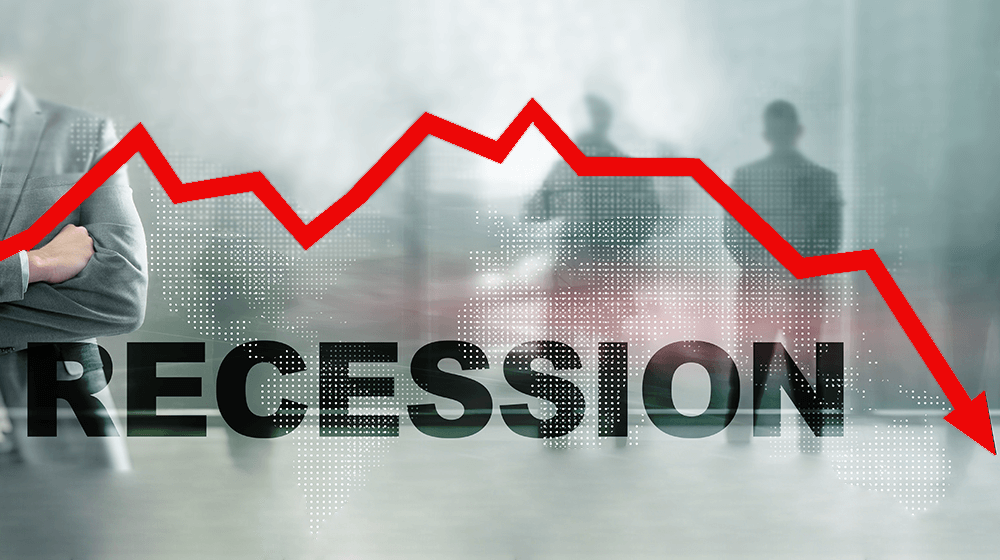Moody’s Chief Economist Says Roughly Half Of U.S. States Are Effectively In A Recession And Hanging On By Their Fingertips
Everything should feel fine in the economy. Gross domestic product was up a healthy 3.8% in the past quarter. U.S. unemployment figurest stayed at a steady 4.3%. Yet, roughly half of U.S. states are hanging on by their fingertips. So, why?
The short answer is it depends on where you live and the environment around you is recessionary.
Moody’s Analytics says 22 U.S. states are seeing their economies contract. Meanwhile, just 16 are seeing economic growth. 13 states are classified as “treading water.”
The states contributing the most to U.S. GDP like California, Texas, and New York are all in the clear. As a result, they pushing the overall growth of the country into the green as a result.
Moody’s chief economist, Mark Zandi says those who don’t live in the wealthier states things “don’t feel very good.”
Zandi also stated that lower-income households are “hanging on by their fingertips financially.”
He explained:
“They’ve got a job, so that’s why they’re still able to spend and remain engaged in the economy, but increasingly … the grip feels more tenuous because no one’s getting hired. You can sustain that for a while, but you can’t sustain that forever. If the layoffs do pick up, that lower-middle-income group is gonna get nailed—and they have no options, because they really don’t have much in the way of saving. They have debt: They have auto debt, they have student loan debt, they may, if they’re lucky, have a mortgage, but they’re gonna struggle, and their world is going to descend into recession pretty quickly.”
Job losses and rising unemployment are usually be the hallmark of recession. However, an argument could be made that the lowest earners in America are living in a recessionary environment. Why? They don’t have any assets. Thus, they’re in a very tenuous situation and that feels like a recession except: ‘I’ve got a job.’
He also points out thing that wage growth for folks in the bottom part of the distribution is lagging.
Zandi said everyone, except for those in the top 20% of earners, doesn’t feel “very good” about the economy.
Regional Breakdown
When you look at the economy on a regional level, the sharpest end of the recession spectrum is Washington D.C. However, that is to be expected because of this year’s mass federal layoffs and funding cuts. These have been which have exacerbated by the government shutdown. These issues are also dragging down the economies of nearby states like Maryland and Virginia.
Other regions tipping into the brink also likely because they are home to industries impacted by White House policy. Zandi points out:
“A bunch of other states rely on industries that are getting hit hard by the tariffs and even the restrictive immigration policy. They’re a manufacturing base, they’re agriculture, transportation, distribution, mining—those would be some of the Midwest states—even Georgia, which was the state that surprised me the most because historically that’s been a stronger state. But it does have a very large manufacturing base, a big port, a lot of agriculture, and in the big Atlanta economy it’s seen a very significant weakening and inflows of people, just because I think costs have risen considerably, it’s just not quite as affordable as it was given all the pandemic-related immigration into the state, and the housing market has gone soft.”
There are some surprising elements of the data. That is that the recession spread would from coast to coast. A recession would not be focused around one region of downturn or another.
California and New York are two states are treading water. They’re big states. If they go into the red then they will probably take the national economy with them into recession.
A downturn the S&P 500 could negatively impact New York. That is because New York is very wealthy. It is also the financial services sector is critical to the big New York City economy. Thus, if if that stumbles, then you know New York’s going in recession.
A downturn in the S&P 500 could also negatively impact California. Why? California is the technology hub of the US. That is because that goes to wealth and it goes to what’s driving the caps among those booming AI companies.



